Welcome to The Friday Prof-ile – a chance to get to know some of our recently appointed Professors and Associate Professors a little better. Every Friday, we’ll be asking a different person the same set of questions to get an insight into their life, work and what makes them tick.
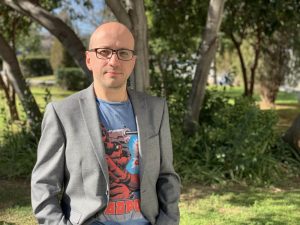
Roman Gerodimos
This week, we’re chatting with Professor in Global Current Affairs, Roman Gerodimos…
What are your research interests? What made you want to study these areas?
I’m interested in the relationship between the individual citizen and the world at large: the things that motivate us to engage with others, with politics, with global affairs, and the things that stop us from doing so: fear, disappointment, cynicism, apathy. I’ve been an avid consumer of politics and world news since I can remember myself and for a long time just assumed that everyone else would be, too. We know, of course, that that’s not true. Ironically though it is now perhaps more important than ever that people engage with politics and global issues; that we assume our share of responsibility for the future of the planet, and that we put themselves forward to lead.
Identifying those factors that can motivate us to engage – whether that is through psychology or a better understanding of history or communication and media or art or even user-oriented design – is key to finding and implementing solutions.
What has been your career highlight to date?
I have several highlights, but if forced to choose I would pick two. One would be producing Deterrence – a feature-length documentary on European security and the past, present and future of NATO that we co-created with staff and students at BU. I’m very proud of our work. It was a very intense but unique experience, we got to cover a major NATO summit from the front row (quite literally), and I loved every minute of the creative and filmmaking process.
My other top highlight would be organising Human Library workshops at the Salzburg Academy on Media & Global Change – an annual summer school that BU co-founded back in 2007, which brings together students, faculty and leaders from all over the world. Creating a space with the simplest ingredients in which a hundred people, over the course of an evening, have some of the most meaningful, personal discussions of their lives is one of the most rewarding things I’ve ever done.
What are you working on at the moment?
I’m just about to complete an edited volume on the relationship between shame and violence (Interdisciplinary Applications of Shame/Violence Theory: Breaking the Cycle, Palgrave Macmillan), which brings together brilliant contributors from different countries and disciplines so as to find innovative ways of breaking that cycle.
I’m also working on my next film project called A Probable Outcome – a meditation on fate, love, otherness and persistence – and on the associated research project on ‘Black women, dwarfs and other misfits of the Old West’ that is informing the script.
If you weren’t an academic, what would you be doing?
For some reason most of my friends are architects – I seem to be collecting them – so maybe life is trying to tell me something!
However, if I weren’t an academic, I would probably be working as a full-time professional scriptwriter or filmmaker or composer for the screen. I love great writing, films and music, so it would be something creative.
I have to say, though, one of the privileges of working at the Faculty of Media & Communication is being able to develop my creative skills and my media and storytelling practice while being an academic. Not many universities give academics that kind of space and freedom, and it’s one of the reasons I’ve stuck around for 20 years.
What do you do to unwind?
To misquote Maggie Smith in Downton Abbey, ‘what is “unwind”‘? I’m joking, of course. I do unwind – I read a lot, I walk, and I love travelling and photography.
What’s the best thing about Bournemouth?
I think it is the university, actually. During the last couple of decades, I have seen how BU – through our diverse student population, our iconic new buildings across both campuses, and crucially our engagement with local businesses, charities and communities – has helped the town modernise and grow.
I think BU can play a leading role in providing space, convening capacity and creative input to nourish Bournemouth’s cultural life – working with artists to put together or support festivals and events, such as the Arts by the Sea festival.
BU is at the heart of a conurbation of three towns – Bournemouth, Poole and Christchurch – with hundreds of thousands of residents, including children, students, and professionals. There is definitely the market and the demand for more culture and BU can help provide that.
If you could pick any superpower, what would it be and why?
My recent research has shown me the literally ubiquitous role of shame in driving negative emotions, such as anger, and violent aggression, including against the self. I’d like my superpower to be the ability to heal people: to make them aware of their own trauma and insecurity, and how that is driving their negative feelings about others and themselves, and how they can gain self-esteem and a sense of responsibility about others and about the world.
If you were stranded on a desert island, what one luxury item would you take with you?
A typewriter. I love writing – no, let me rephrase: I couldn’t live without writing, it’s like therapy for me. The added bonus of a typewriter is that I wouldn’t have any distractions, so I could finally write a proper monograph.
What advice would you give to your younger self?
I don’t have major regrets – I’ve always followed my heart and my gut instinct, so I wouldn’t change anything, at least career-wise. But I think we can always, always be better listeners, so I would advise me to be a better listener of the things not said – the omissions, the pauses – and a better observer of the things not seen. These can be as revealing as the things that are said and seen.


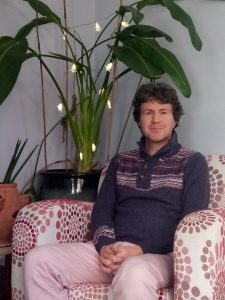
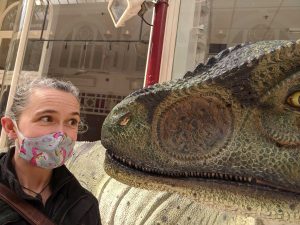
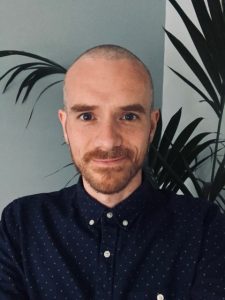
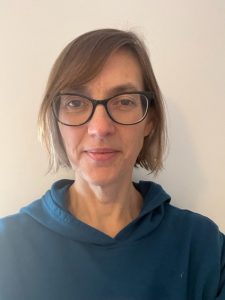
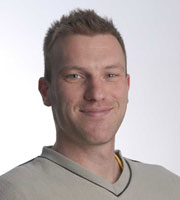












 Second NIHR MIHERC meeting in Bournemouth this week
Second NIHR MIHERC meeting in Bournemouth this week Dr. Ashraf cited on ‘Modest Fashion’ in The Guardian
Dr. Ashraf cited on ‘Modest Fashion’ in The Guardian NIHR-funded research launches website
NIHR-funded research launches website MSCA Postdoctoral Fellowships 2025 Call
MSCA Postdoctoral Fellowships 2025 Call ERC Advanced Grant 2025 Webinar
ERC Advanced Grant 2025 Webinar Horizon Europe Work Programme 2025 Published
Horizon Europe Work Programme 2025 Published Horizon Europe 2025 Work Programme pre-Published
Horizon Europe 2025 Work Programme pre-Published Update on UKRO services
Update on UKRO services European research project exploring use of ‘virtual twins’ to better manage metabolic associated fatty liver disease
European research project exploring use of ‘virtual twins’ to better manage metabolic associated fatty liver disease